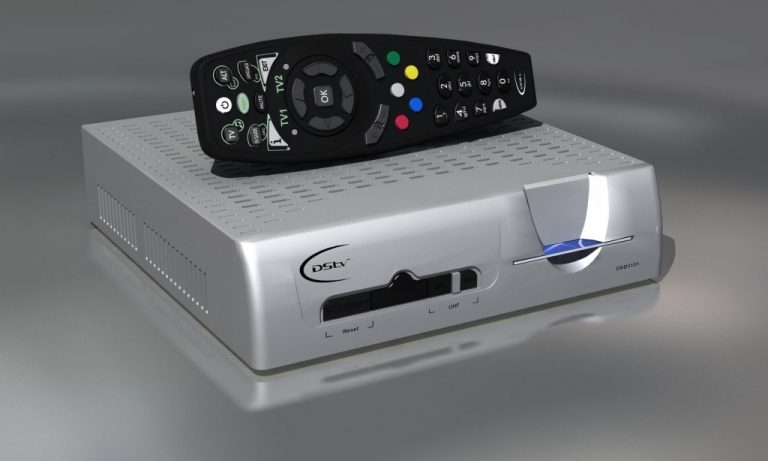
A Nigerian Court has stopped DStv from increasing its prices in the nation. In July, MultiChoice, the owner of DStv, announced new monthly subscription rates, jacking up the Premium package by 7.5%; the new rates took effect from August 1. The consumers cried foul and sought help from the Consumer Protection Council, a consumer protection advocate funded by government, making a case that MultiChoice was exploiting Nigerian consumers.
A Federal High Court in Abuja on Monday restrained Multichoice Nigeria Limited from going ahead with its recent decision to increase the subscription tariffs for DSTV, its satellite cable television service providers.
The restraining order was issued in respect of Suit No FHC/ABJ/CS/894/18 brought before the court by the Consumer Protection Council (CPC) in the light of the strong public interest raised in the application.
The Attorney-General of the Federation and Minister of Justice, Abubakar Malami, had granted the authority for the Council to initiate the suit under Section 10 and 16 of the Consumer Protection Council Act, Cap c25, LFN 2004.
In his order, the judge, Nnamdi Dimgba, said the interim injunction restrains Multichoice Nigeria or its agents and representatives from continuing the implementation of any increase in subscription rates or price review policy imposing increased charges and costs on the consumers pending the determination of the motion on notice.
[…]
In July, MultiChoice Nigeria announced new monthly subscription rates for the DSTV Premium package from N14,700 to N15,800 (about 7.5 per cent) Compact Plus from N9,900 to N10,650; Compact bouquet from N6,300 to N6,800; Family from N3,800 to N4,000, and Access from N1,900 to N2,000.
This is not necessarily good news: simply, the court is saying that DStv is a monopoly. If not, this court-driven price control would not have been necessary in an entertainment sector. This is not electricity where the court has been active with its hammer on tariffs.
Interestingly, the consumers may not have noticed that Nigeria has nurtured a local competitor. When TSTv unveiled, I wrote it off as a decent competitor to the MultiChoice empire. The action of the court has confirmed that nothing has changed. Had TSTv held its domain, DStv would not even be thinking of increasing price and the consumers would certainly not be concerned of fighting a legal battle: yes, they would cancel DStv for TSTv because TSTv would offer value at a low amount. Unfortunately, there is no TSTv in all ramifications.
Register for Tekedia Mini-MBA edition 19 (Feb 9 – May 2, 2026): big discounts for early bird.
Tekedia AI in Business Masterclass opens registrations.
Join Tekedia Capital Syndicate and co-invest in great global startups.
Register for Tekedia AI Lab: From Technical Design to Deployment (next edition begins Jan 24 2026).
TStv, a new pay TV company, is beginning a journey to challenge the largest company in Africa by market valuation. Naspers which owns MultiChoice operates the DStv brand across sub-Saharan Africa. DStv is a digital satellite TV service which leads its category in the region. It is well funded by South Africa’s Naspers which has a valuation of $100 billion.
Bad Trend
If it has gotten this easy for court to rule on entertainment pricing, we have a real problem in Nigeria. DStv competes with many companies including Netflix, iROKOtv, YouTube, Facebook and anything that can entertain and keep consumers glued to their computers. If the court does not understand that, and focuses on regulating DStv, the trajectory is dangerous. Largely, allowing DStv to price entertainment as it wants could possibly trigger opportunities for another company to emerge with competitive pricing. But that is not the case: Nigerians are seeing DStv as a monopoly and by that acknowledging that everyone in the sector has failed. If not, there is no reason for a court to stop a company from increasing how much it sells movies and shows.
All Together
In this piece, I argue that the court is making a huge mistake. Nigeria should not be seen as a nation where courts are fixing prices of movies and shows. DStv competes with YouTube, Facebook, Netflix, TStv, etc. If it thinks it can increase rates, it can be increasing itself out of relevance. Possibly, consumers will revolt and take another look at a competitor.
Our courts are becoming increasingly trial in nature. I do hope they modulate because if they take this trajectory further, they would destroy innovation in the nation. Watching videos is not the same as water and electricity rates [yes, they do rule on those]: I do not support courts fixing the prices of movies and shows!
---
Connect via my
LinkedIn |
Facebook |
X |
TikTok |
Instagram |
YouTube


